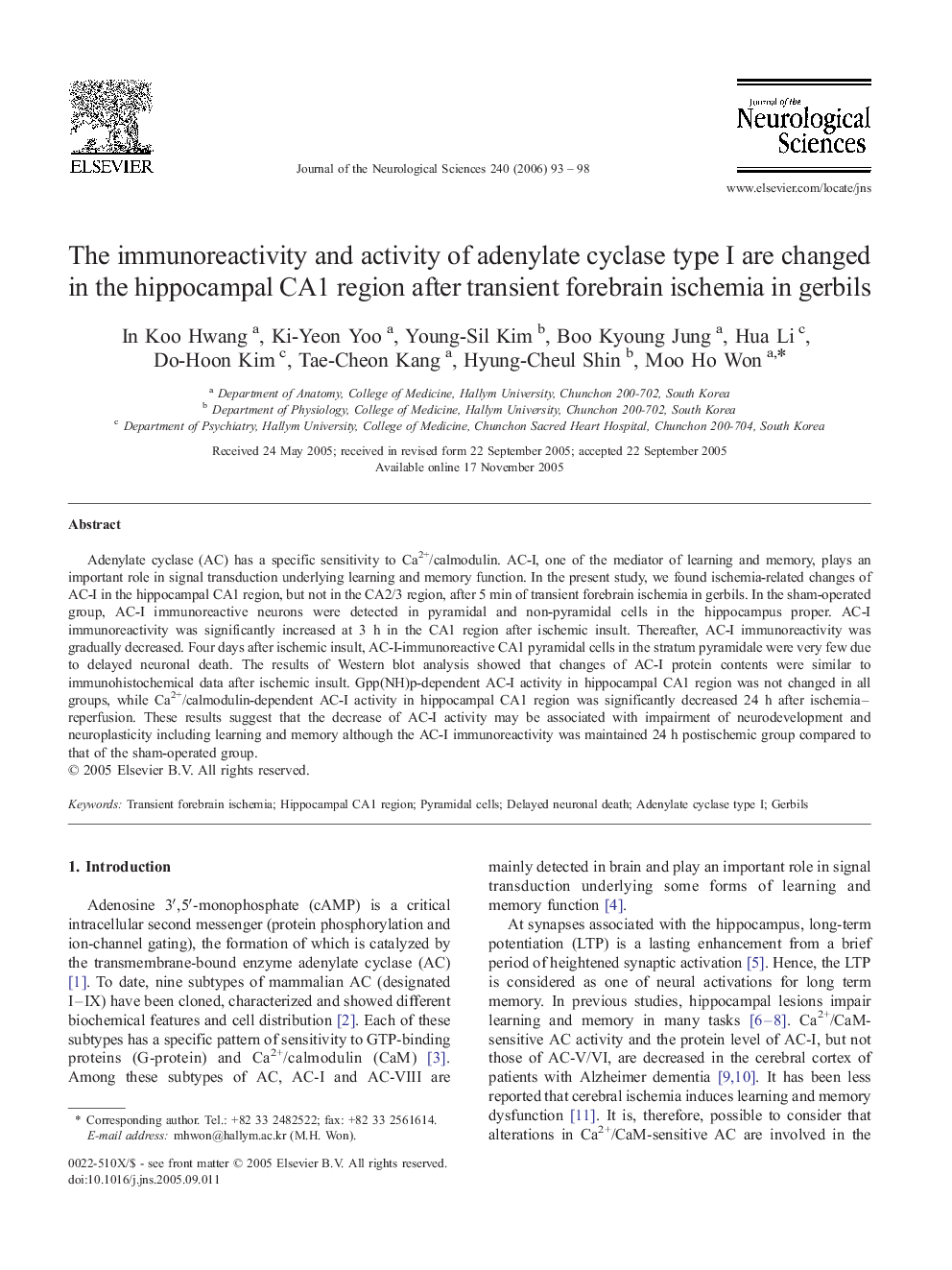| Article ID | Journal | Published Year | Pages | File Type |
|---|---|---|---|---|
| 1916902 | Journal of the Neurological Sciences | 2006 | 6 Pages |
Abstract
Adenylate cyclase (AC) has a specific sensitivity to Ca2+/calmodulin. AC-I, one of the mediator of learning and memory, plays an important role in signal transduction underlying learning and memory function. In the present study, we found ischemia-related changes of AC-I in the hippocampal CA1 region, but not in the CA2/3 region, after 5 min of transient forebrain ischemia in gerbils. In the sham-operated group, AC-I immunoreactive neurons were detected in pyramidal and non-pyramidal cells in the hippocampus proper. AC-I immunoreactivity was significantly increased at 3 h in the CA1 region after ischemic insult. Thereafter, AC-I immunoreactivity was gradually decreased. Four days after ischemic insult, AC-I-immunoreactive CA1 pyramidal cells in the stratum pyramidale were very few due to delayed neuronal death. The results of Western blot analysis showed that changes of AC-I protein contents were similar to immunohistochemical data after ischemic insult. Gpp(NH)p-dependent AC-I activity in hippocampal CA1 region was not changed in all groups, while Ca2+/calmodulin-dependent AC-I activity in hippocampal CA1 region was significantly decreased 24 h after ischemia-reperfusion. These results suggest that the decrease of AC-I activity may be associated with impairment of neurodevelopment and neuroplasticity including learning and memory although the AC-I immunoreactivity was maintained 24 h postischemic group compared to that of the sham-operated group.
Keywords
Related Topics
Life Sciences
Biochemistry, Genetics and Molecular Biology
Ageing
Authors
In Koo Hwang, Ki-Yeon Yoo, Young-Sil Kim, Boo Kyoung Jung, Hua Li Hua Li, Do-Hoon Kim, Tae-Cheon Kang, Hyung-Cheul Shin, Moo Ho Won,
